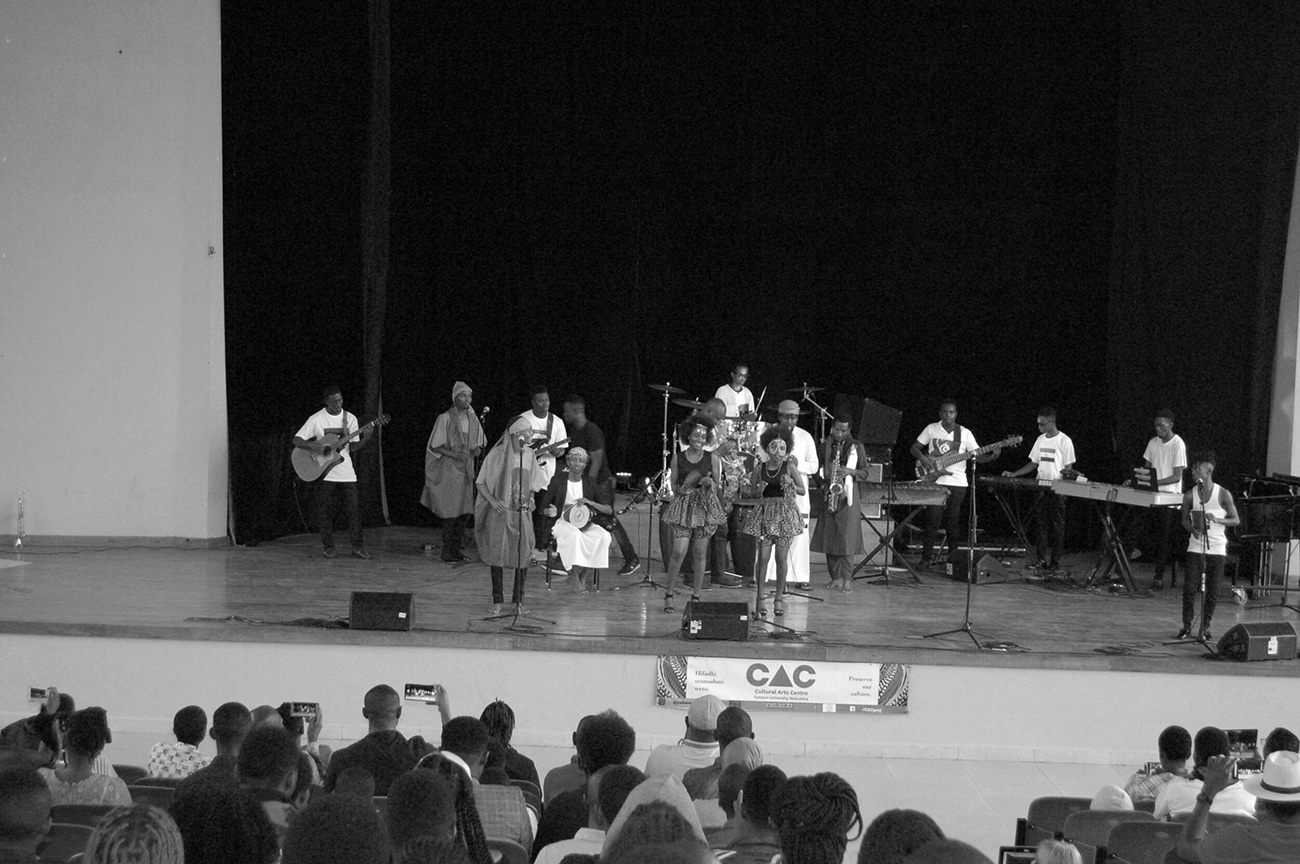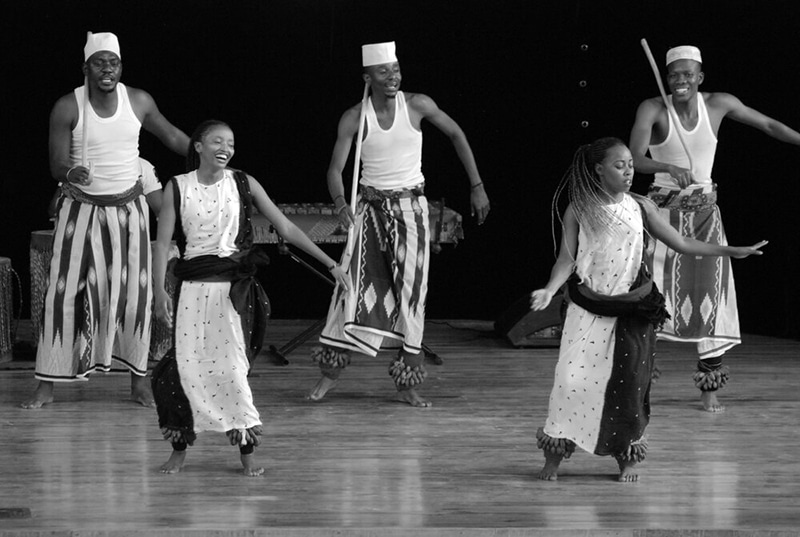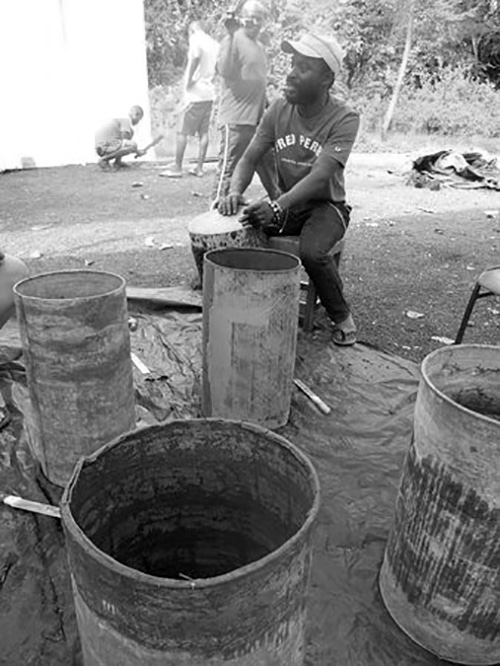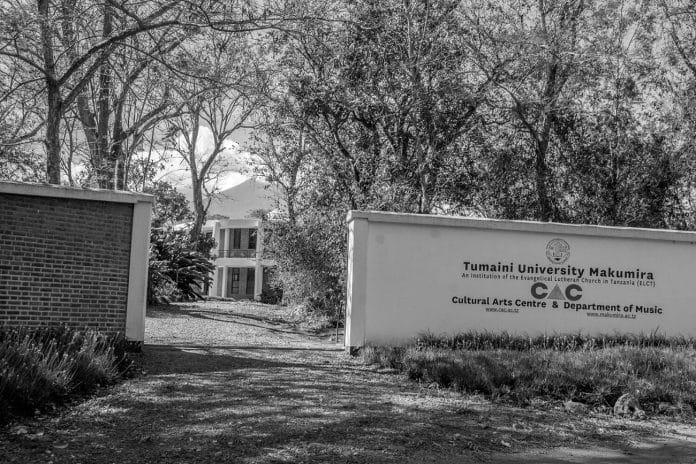Tumaini University Makumira: Overview, Music, Outreach and More
The History of the Cultural Art Center at the Tumaini University Arusha
This facility in Arusha, Tanzania, is a hive of activity for music and dance, showcasing both traditional and fusion genres. It is found on the other side of Tumaini University at Makumira.
Tumaini University Makumira’s Music Department initiated the initiative, which was made possible thanks to EU Development Fund funding from 2014 to 2018. We expanded our school outreach program, documented the music and dance traditions of the indigenous Meru, Chagga, and Maasai peoples of northern Tanzania, and set up a training center for professional dancers and musicians in the Arusha region.
More than 600 performances have taken place on and off-campus at Tumaini University Makumira by 15 dancers/musicians from CAC’s current staff to present-epoch December 2020. A wide range of Tanzanian music and dance genres are used in their performances, including traditional dances, newly devised dances, and compositions that blend both traditional and modern themes. Some of these raveling performances are, in 2017 and 2018, they represented Tanzania at the Sauti za Busara in Zanzibar, the 2016 and 2019 Kampala’s DOADOA East African Performers Market, and the 2015 East Africa Culture celebration in Nairobi (JAMAFEST).
Aside from the above, we have also recreated the Moshi’s KiliFair at Arusha’s Karibu Tourism Tanzania and Arusha’s Karibu/Kilifair 2019, and Dar es Salaam’s Swahili International Tourism Exhibition (SITE) and other occasions for the Tanzania Association of Tour Operators and Tanzanian Tourist Board.
In November 2017 the Tumaini University Makumira finished putting up structures like the 435-seat performance venue, a conference hall with catering facilities, a dance studio with a sprung dance floor, cultural exhibitions, and office space, amongst others. The locals built Maasai, Arushi, and Meru bomas in the Traditional hamlets.
Tumaini University Courses
Through the following Tumaini University Makumira courses, we aim to preserve and strengthen Tanzanian music and dance traditions:
- To create a permanent home for the study, documentation, conservation, and music and dance culture promotion.
- To use worldwide standards for local field research, creating, organizing, archiving, and making available documentation for research and preservation.
- To develop selected musicians and dancers’ professional and entrepreneurial abilities to find appointments and make a living.
- To regularly promote and organize live paid performances by skilled and competent performers of traditional music and dance.
- To teach about and have fun with traditional music, dance, and instruments for people of all ages in the community and schools.
- To implement sustainable revenue-generating projects linked to traditional music, dance, and instruments to reach domestic and foreign audiences.
Composition and Orchestral Studies at Tumaini University Makumira
Makumira’s Tumaini University’s (TUMa) music department connects to the Cultural Arts Centre. The students share their performance venue, music library, classes, and others.
In addition, students frequently perform with the CAC in various musical styles, including traditional, fusion, and more.

In 2005 when it was established, there were only four students and two staff members in the Music Department. As of this point, they’ve been running for 11 years and have graduated 91 different tutees. Certification and diplomas are available to students at Tumaini University Makumira
Visit the TUMa prospectus or email department head Seth Sululu at ssululu@yahoo.co.uk for further information about their programs.
The following approaches have been set by the Tumaini University Makumira Cultural Art Center and the Music Department:
- Tanzanian instruments of the highest quality in the world
- The largest collection of Western instruments in Tanzania (brass, woodwind, and strings)
- In total, there are around 5,000 titles in the music library.
- Cutting-edge recording and post-production facilities
- Worldwide performances, workshops, and interactions
- Cooperation and cooperative endeavors with Tanzanian schools, churches, and non-governmental organizations (NGOs) in Tanzania and abroad
The Tumaini University Makumira CAC Outreach
An annual project with local schools is also sponsored by the CAC, which teaches indigenous artists. From 2015 to 2017, nine secondary schools participated in the project. Form 1 tutee participates in workshops led by professional CAC artists in schools. After six sessions, an extremely exciting inter-school dance and drumming competition are held at the CAC, which their peers and others attend and appreciate. The Meru district’s school dance competition was birthed after moving from senior to primary schools between 2019 and 2021. Elementary students from all twelve participating schools embraced the program and gave it their best throughout the training and presentation phases. Awards are issued to the respective schools being the finest drummer and dancer.
They have also performed at several local institutions, including Makumira, Kiwalaa, Uraki, St Constantine’s School, and the Nkoaranga Orphanage. Carol Stubbs started an outreach program at Uraki Secondary School, and it is now run by CAC dancers and music students.
It serves as a haven; As part of the M3 Performing Arts Trip for Moshi International School, currently known as UWC East Africa, which includes a stay at the CAC, where they’ll learn to dance and drum and construct costumes and sets as well as learn some sound engineering.
The Tumaini University Makumira CAC 2021 Contest
This year, the African Culture Fund funded the school outreach program in January and climaxed with a performance on Saturday, January 30. All 12 Meru district primary schools were visited for two weeks by twelve dancers who taught at Uraki, Mavinuni, Usa river, Patandi, Leganga, Kilimani, Nshupu, Ngyani, Makumira, Sing’isi, Nkoaranga, and Poli. They went to several schools for two weeks and taught the Masewe dance.
On the 30th, the chosen schools competed, with Poli Primary coming out on top, followed by Sing’isi in second place and Kilimani in third. All students had a free lunch, and small buses took them to and from the competition at CAC. A total of 260 kids took part. Around 500 people came to see the show.
We’d want to use this opportunity to thank the African Culture Fund once more for helping to make this event possible.
Tumaini University Makumira Investigation, Documentation, and Validation
We started a project to chronicle the music and dance of the Maasai, Chagga, and Meru peoples of Northern Tanzania as part of our effort to preserve their music and dance traditions. A digital collection of almost 1500 recordings has been created by the center. For the communities that inspired the song, information has been modified and returned to recall the circumstances that inspired the song.
Maasai
In Arusha, the Waarusha Maasai tribe is the largest source of ethnographic cassettes. Innumerable invitations to circumcision rituals, nuptials, and even the once every twenty-five years of the Junior Elder Graduation were extended to us. Our interviews with members of our study team’s extended families and elders who had participated in traditional rites were the first step in our investigation.
Chagga
A professional group, the Mtingo Group, with a mission statement that included preserving Chagga culture, although Chagga traditional music had been dwindling in popularity at most gatherings; as a result of the Tumaini University Makumira CAC interviews and recordings, their music is now accessible for download from the archive.
Our investigation revealed that music had altered substantially throughout time, with the most notable alteration occurring when missionaries arrived, and the lyrics were rewritten to worship God.
Meru
We heard similar stories from the Meru elders we met. Their two ensembles, the Sing’isi Group and the BAWACHA Group can be hired for celebrations. They were happy to join in our documentation project to preserve their music for future generations.
Tumaini University Makumira Scholarly Transcripts
We transcribe and translate music from the Maasai, Chagga, and Meru peoples into three different languages as part of our research. These educational materials for Tanzanian and foreign teachers include translations, background information, and pronunciation guidelines:
- Kichang’achang’a
- Mkunare
- Msuri Chamecha
- Naomoni Aiy
- Ngahenda Mashi
- Elaku Eng’ai Enalili
- Eranyoy
- Ilatimi
- Khaleluyha
Tumaini University Makumira CAC Services Delivered
Performances
More than 600 performances in various formats and ensemble settings have been staged by a resident group of 15 professional performing artists at the CAC so far (12/202020). Sauti za Busara in 2017 and 2018, DOADOA in 2016 and 2019, Jamafest, 4CCP, and Haydom are just some of the major festivals we’ve played in East Africa. We have performed for all four current East African presidents, the US and UN Ambassadors, and former US President Barak Obama in Tanzania and performed at tourism events such as KiliFair in Moshi and Arusha Karibu Tourism Tanzanian Swahili Tourism Exhibition (SITE), and many more.

Traditional Dances on Display
Sixteen full-time Tumaini University Makumira CAC dancers perform a high-energy show lasting an hour. At least seven unique Tanzanian ethnic groups are represented in the performances and a wide range of instrumental music (drums, flutes, marimba, mbira [thumb piano]). If you want to get a taste of Tanzania’s vibrant traditional cultures, this is the place to go.
We’ve had to stop doing shows every week because of the advent of Covid. Instead, we only work when it is necessary.
Fusion of Performance
The Tumaini University Makumira CAC band fuses traditional tunes with electronic and traditional instruments to produce a thrilling combination of energy and diverse instrumentation. In addition, they can collaborate with dancers to produce a unique performance. We also play a variety of international covers in our setlist.
Please get in touch with us to get a customized quote based on the location, time, and amount of performers you need.
Tumaini University Makumira Off-Site and On-Site Performances are Possible
For a more personal experience, any CAC ensembles are welcome to perform in our purpose-built performance space or in the forest. To make things even easier, we can meet you and your guests at a conference center, nearby hotel, or airport if that is more convenient for you.
Please get in touch with us to get a customized quote based on the time, location, and performers you need.
Classes and Workshops
Our resident artists’ expertise is available to guests through various programs at Tumaini University Makumira CAC.
Check out our sample half-day and full-day schedules for a fun-filled day at our beautiful center. In addition, you can access a promotional booklet by visiting our website.
Tumaini University Makumira Training in the Art of African Dance
Learn a traditional Tanzanian dance with our talented performers/musicians. One person can do this in the African way, but it’s best done in small groups of four to ten. They can join the CAC dancers in performing if they choose to do so if they are still present for the show that day. Each person is charged $10 an hour.
African Drumming Workshop
With the help of our expert Tumaini University Makumira CAC drummers, visitors will learn a variety of drumming patterns for 1to 2 styles of Tanzanian dance. The easiest way to do this is with 1-4 persons, but larger parties can use the services of CAC’s additional drummers. Participants only need a desire to learn to participate. Everything will be taught through examples and memory (no music reading required). Each person is charged $10 an hour.
Make a Comfort Food Dish
In this outdoor “kitchen,” you’ll learn about ancient water collection and cooking methods using three rocks. Chapati (flatbread), ndizi (cooked bananas), ugali (stiff corn porridge), mchuzi (relish), and mboga za majani (pumpkin leaves) will be served to participants. Each participant costs $15.
Manufacturing of Coastal Drums in Tanzania

Guests will be able to take home a Tanzanian coastal drum. Using a pair of scissors, they’ll cut the cow skin into the right shape, then weave ropes and sew the drum together. Four persons are the maximum capacity of each drum. Each drum costs $50. Reservations for this activity must be made at least one day in advance to prepare the skin properly.
Visit the Swahili Boma and the Shamba (Traditional houses)
Members of the local ethnic groups have built replicas of their traditional Maasai, Arusha, and Meru homes, which guests can see up close. A tour of the 100-acre Karamu estate, which is home to coffee and a variety of other crops, is available if time permits for visitors to the Tumaini University Makumira CAC. There is also a stream running through the CAC property, which provides excellent views of Mt. Meru and the chance to watch Sykes and Colobus monkeys, as well as a wide variety of birds. For $25 per group, a tour guide will lead you around the city.
Exhibition At the Tumaini University Makumira CAC
Those who want to learn more about the traditional dances and music of Northern Tanzania can visit the CAC cultural exhibitions that include traditional hands-on instruments, clothes, and even the opportunity to pose as an actual Maasai! $25 per group for guided tours.
Purchasing a souvenir from the CAC Store
The Tumaini University Makumira CAC also features a small gift shop where visitors can buy instruments, jewelry, books, films, and locally-made items. All pieces are made by CAC artists or community-based organizations that the CAC sponsors.
Rental
It is currently possible to rent out the Tumaini University Makumira CAC facilities finished in November 2017. Except for two classes, all of the school’s facilities are accessible to the disabled. Please inquire about availability.
Tumaini University Makumira Phenomenal Theater
There are 435 permanent seats in our performance space and an outside watching area. There is a hardwood floor that covers an area of 13×7.5 meters. A green room and lockers are also available in the backstage area and three dressing rooms (one for each actor, star, and actress) with showers and toilets. A grand piano is also available on stage or in a separate room.
Room for Conferences
Seventy-five people can be comfortably accommodated in the conference room, which has mobile chairs and workstations. Storage and a catering kitchen are available. A projector can be leased for presentations.
Tumaini University Makumira Dancing studio
The dancing studio has a sprung floor and two mirror walls (12×7.5m). It is possible to use the neighboring buildings’ showers and toilets from two more changing rooms.
Small Meeting Rooms and Extra Office Space are Available for Rent
There is a modest conference room at Tumaini University Makumira for ten people, two classrooms with tables and chairs, and more office space. There are whiteboards in each of the classrooms.
Equipment for Sound, Light, and Stage Production
We offer a wide variety of instruments and high-tech sound equipment at Tumaini University Makumira. Backline, instruments, and all other instruments can be found by clicking here.
Sound Engineering Knowledge
Two sound engineers are employed by the CAC who have extensive experience dealing with Tanzanian traditional, contemporary, and Western classical music. Ask about your requirements.
The Best Places to Go If You Want to Become an Artist
For Arusha-based musicians, Tumaini University Makumira CAC offers training. Besides learning about Tanzanian traditional music and how to improve their existing musical skills, thirty young people are instructed in warm-up exercises, basic musical theory, and the business of music. This project aims to alleviate Tanzanian youth unemployment by promoting the growth of Tanzania’s music and arts industries. The professional CAC ensemble will select four deserving students to work as interns.
The CAC has held four training sessions, educating 110 youth.
Our next course will run from the 5th to the 16th of April and is aimed at young adults between the ages of 18 and 25.
African Ngoma dance and drumming, acting, music reading, and the basics of musical theory will all be part of this course. Students interested in pursuing a profession in music or dance will be given priority, but all participants will be encouraged to improve their skills. The African Culture Fund is providing this training for free.
The Tumaini University Makumira CAC office and the internet are good places to get application forms.
Visit this page for more details.
To experience Tanzanian culture, “Come and Feel the Rhythm.”
Get in touch!
If you have any questions regarding the CAC or our work, or if you want to share your thoughts, please don’t hesitate to get in touch.
- Contact Randall Stubbs, the author of this article, at: manager@cac.ac.tz, or +255 786 300 213.
- Glory Ewald at info@cac.ac.tz, or +255 784 052 766.
Office Adress: Cultural Arts Centre Tumaini University Makumira, PO Box 55, Usa River, Arusha, Tanzania.
Other Important Things and Information to Know About Makumira University
Are you considering to join this university? Here are the main 3 things to get you going quickly:
- Tumaini Makumira university fees structure – Download 2022 PDF
- Tumaini university Makumira OSIM – https://osim.makumira.ac.tz/
- Tumaini university selected candidates – https://makumira.ac.tz/ (See announcements section on the right side of the homepage)
Main Branches
- Tumaini university Dar es salaam – https://tudarco.ac.tz/
- University of Iringa formerly Tumaini university Iringa:
- Tumaini university Iringa courses
- Certificates and Diplomas – https://www.uoi.ac.tz/index.php/admission/academic-programs/non-degree-program
- Undergraduate – https://www.uoi.ac.tz/index.php/admission/academic-programs/undergraduate
- Postgraduate – https://www.uoi.ac.tz/index.php/admission/academic-programs/postgraduate
- Tumaini university Iringa online application – https://olas.uoi.ac.tz/myapp/
- Tumaini university Moshi – https://www.smmuco.ac.tz/
- Tumaini university Iringa courses
For more articles related to Education in Tanzania, click here!





























